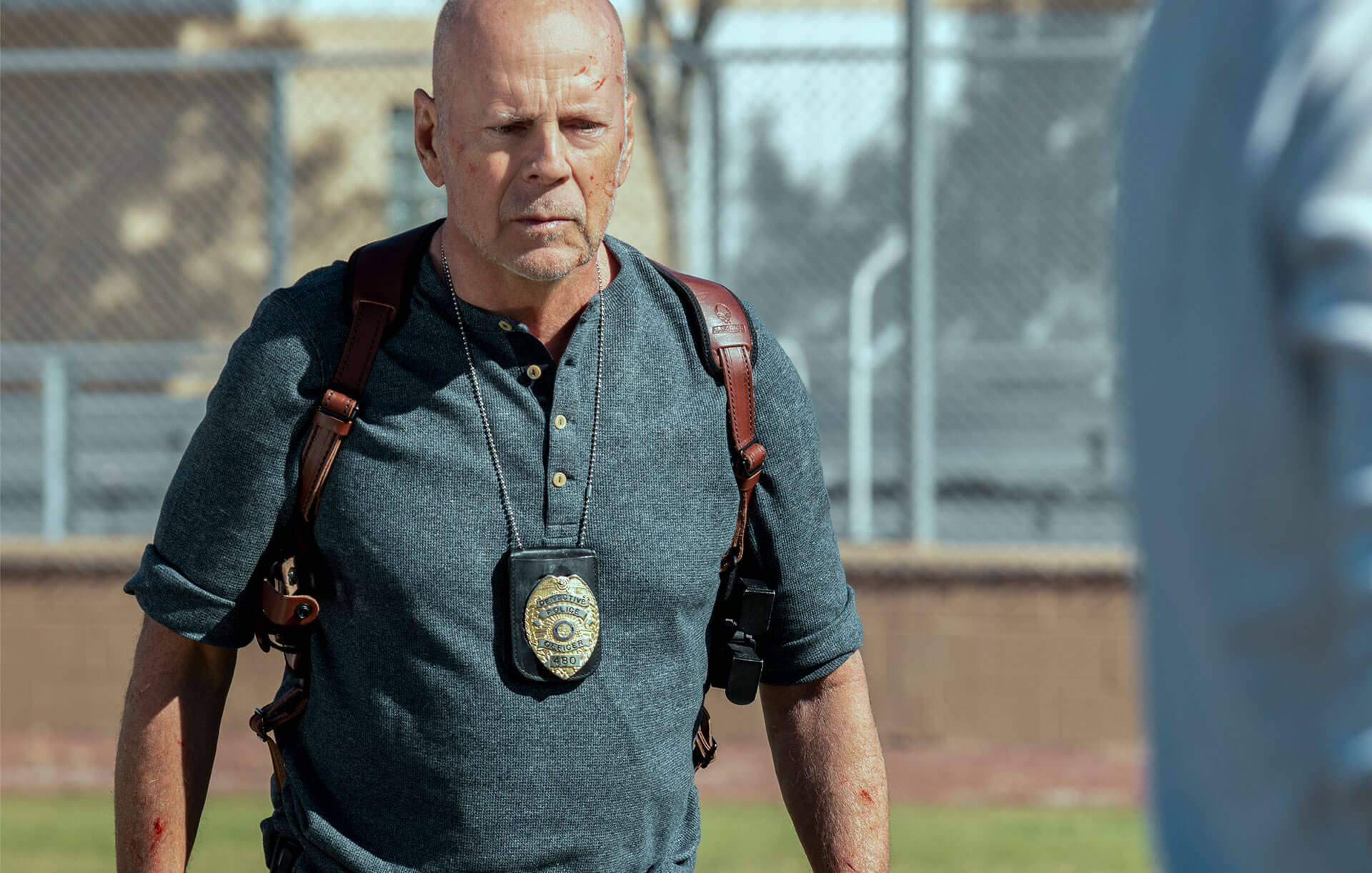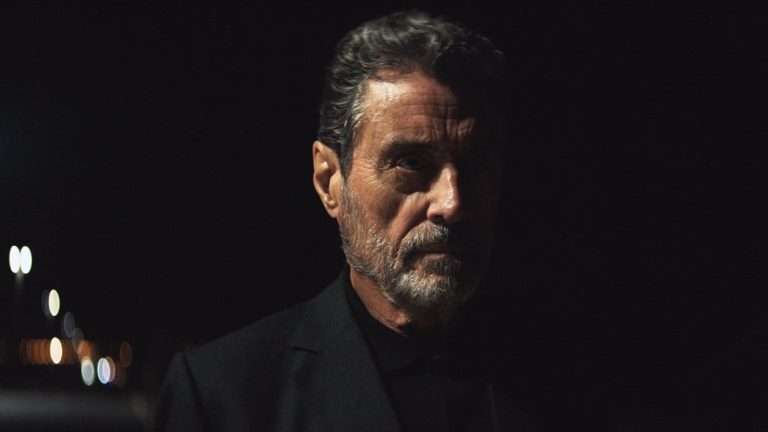Every direct-to-video release that comes with Bruce Willis’s face stuck at the center of the frame, without so much as starring him as a lead, makes me worry in horror. From a humane point of view, you don’t really feel like mocking the actor’s last few roles because of his advancing aphasia. At the same time, from a critical point of view, you can’t look beyond the fact that these movies merely exploit the brand that is ‘Bruce Willis’ to tell a lazy story that pushes him away from the spotlight yet again. Detective Knight: Independence, which is supposed to be the last part of the cop trilogy, might be more straightforward than the other two but is just as vapid, unexciting, and forgettable.
Directed by Edward Drake (the man responsible for most of Willis’s late-career resurgence) sets the new film around the 4th of July. If you are aware of Drake’s previous works (Gasoline Alley, Paradise City, or one of the other two Knight movies), you’d know that most of his work is on-the-fly. You can easily spot that a chunk of his movies is mostly done during post-production – patchy handiwork and out-of-place ADR aside; these movies actually sound and look decent. Detective Knight: Independence, which was shot in merely seven days, is no different. It’s a low-budget production that is designed to look like it isn’t.
But these restraints don’t take away the fact that this is yet another lazily mounted and generic thriller that is so hell-bent on also being a character-driven piece that it takes a lot of time to get to the point. Opening with a POV-shot bank robbery that re-introduces us to Detective Knight along with Dezi (Jack Kilmer) and Ally (Willow Shields) – a set of paramedics who are good at their jobs but are never truly appreciated for it, Detective Knight: Independence feels like a direct hook into the American dream. One of the paramedics, Dezi, always wanted to be a cop but wasn’t allowed to. He is particularly disturbed by the fact that people don’t admire him for being a life-saver as opposed to the sorry cops who don’t even do their jobs well.

So, as fate would have it, he is asked to leave his duties when one of the patients he helped keep his life intact lodges a complaint against him. This leads Dezi into a downward frenzy as he steals a cop uniform and a revolver and starts roaming around the streets, acting like a real cop before deciding to rob a bank. The motifs are there, and Edward Drake makes sure that you know of Denzi and his character more so that the transition to madness doesn’t seem uneasy. However, the execution is so sleazy that you can only focus on the bad dialogue and odd riffs off better movies.
Bruce Willis’ detective is again seen mumbling into thin air as people around him spit out dialogues like “Fine is not the f word I would use to define your daughter.” Yes, there’s another motif planted here for Knight, but it is never truly explored to get you emotionally invested in the Cop’s need to save his daughter from a conveniently plotted narrative turn.
Much like the trilogy’s first film that borrows heavily from Micheal Mann’s Heat, there are blatant throwbacks to Nolan’s The Dark Knight and, more recently, to Micheal Bay’s Ambulance. These don’t serve as anything remotely deeper than the surface-level look at the two spectrums of American Law Enforcement Officers, despite director Drake claiming it to be a metatextual look at the grey area in which they currently stand. I assume this subtext is also something that gets fixed in post-production, and I guess I failed to see it through.
More so, no one is even remotely interested in the entirety of this shiftless chore. Even the climactic chase sequence is so uninspired that there’s simply nothing here that I would like to laud and recommend. If you haven’t invested your time and energy to begin with the trilogy, there’s no point checking this out; if you have, you will watch it anyway, so there’s that.




![Sully [2016] : Unabashed Ode to Common Man’s Heroism](https://79468c92.delivery.rocketcdn.me/wp-content/uploads/2016/12/14316924_1857127821181780_6952566500219667924_n-768x512.jpg)



